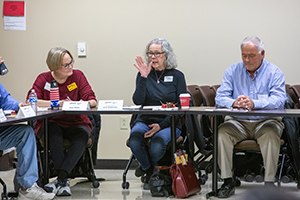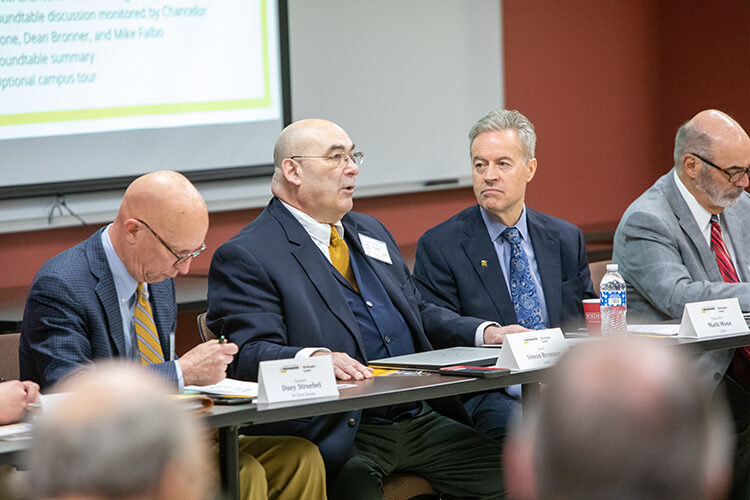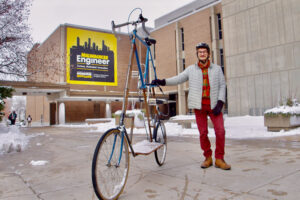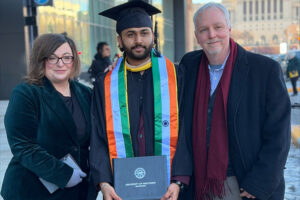Expanding programs that allow high school students to earn valuable college credits before enrolling in higher education could save money and speed up the time it takes to earn a degree and find a job.
Growing what’s known in education circles as “dual enrollment programs” was one of the ideas presented by attendees at a roundtable discussion Wednesday at UWM at Washington County led by UW System Interim President Michael Falbo and UWM Chancellor Mark Mone.
Other suggestions from community members, who included school district superintendents, chamber of commerce leaders and elected officials, included making it easier for students to transfer credits between UW System institutions, and between technical colleges and the four-year system colleges and universities; and offering more programs for “badges” or credentialing that allow students, including those in mid-career, to earn educational certificates.

Tom Hostad, executive director of the Hartford Area Development Corp., said he was working with the university and other leaders to expand UWM continuing education opportunities in the Washington County community. Such opportunities can play an important role in retaining employees at a time when many businesses are having a hard time attracting or keeping workers.
“For too long … education beyond high school has been campus-based. We want to be able to bring or create a campus in Hartford where our employers can send their people to get the kind of additional training, or ‘upskilling,’ they need to become valuable employees,” Hostad said.
“That’s a great example and we want to scale that,” Mone said. Attracting students “is one thing, but retention is even more important for long-term growth.”
The roundtable was the latest in a series of listening sessions at UW System campuses during a time of transition. Falbo replaced former Gov. Tommy Thompson as system president in an interim capacity in March; Jay Rothman takes over the position on a permanent basis on June 1.

“We are here to listen, collect this information and act. We will act,” Mone said.
It’s also an unsteady time for higher education overall. Among worrisome issues are projected enrollment declines caused by shifting demographics, a steady decrease in state financial support and rising costs that have led to increasing student debt. The COVID-19 pandemic also dealt another financial blow.
During the discussion, Mone highlighted several UWM initiatives already under way that could help address concerns, including those initiated before the pandemic.
For example, participation in the Higher Education Regional Alliance facilitates better coordination and communication among southeastern Wisconsin colleges and universities on key issues, including making it easier for students to transfer credits. Another UWM program, TechEd Frontiers, is an example of an offering for mid-career professionals to learn new skills online and on demand.
UWM at Washington County is working with the Hartford School District on programming to bring high school students to campus in the fall.
‘Meeting students where they are’
Dan Anhalt, senior director of consultative services at Economic Development Washington County (EDWC), said about 29% of Washington County residents had some college credit but not a degree. Higher wages being offered by companies desperate for workers also might make students think about postponing college until they learn other skills.
“We always talk about meeting students where they are. Where students are is a very different place from where they might have been 10 years ago,” Anhalt said. He said employers are looking for workers to learn skills early in their education career, instead of completing a degree program.
Many issues facing the county and the UWM campus, though, aren’t new, and are being faced by many institutions across the country amid population shifts.
Washington County Executive Josh Schoemann offered to help start a task force to address higher education issues that he said could be an “incubator for solving this problem at the local level, and working it back up to the top of the system.”
The presence of a four-year higher education institution, he said, was “essential to the long-term success” of the county. Mone said he supported the idea and hoped that UWM could be part of the task force.








